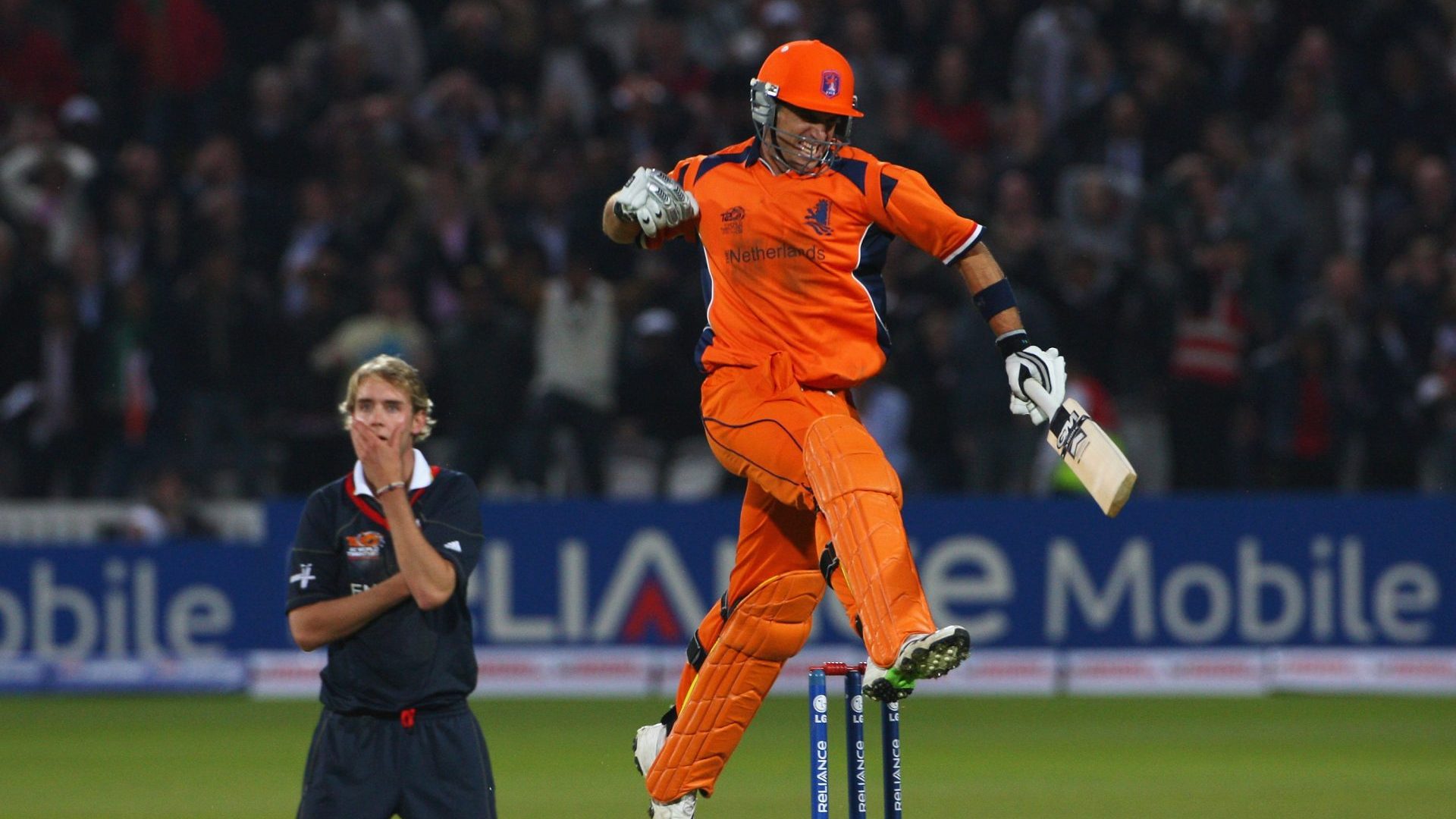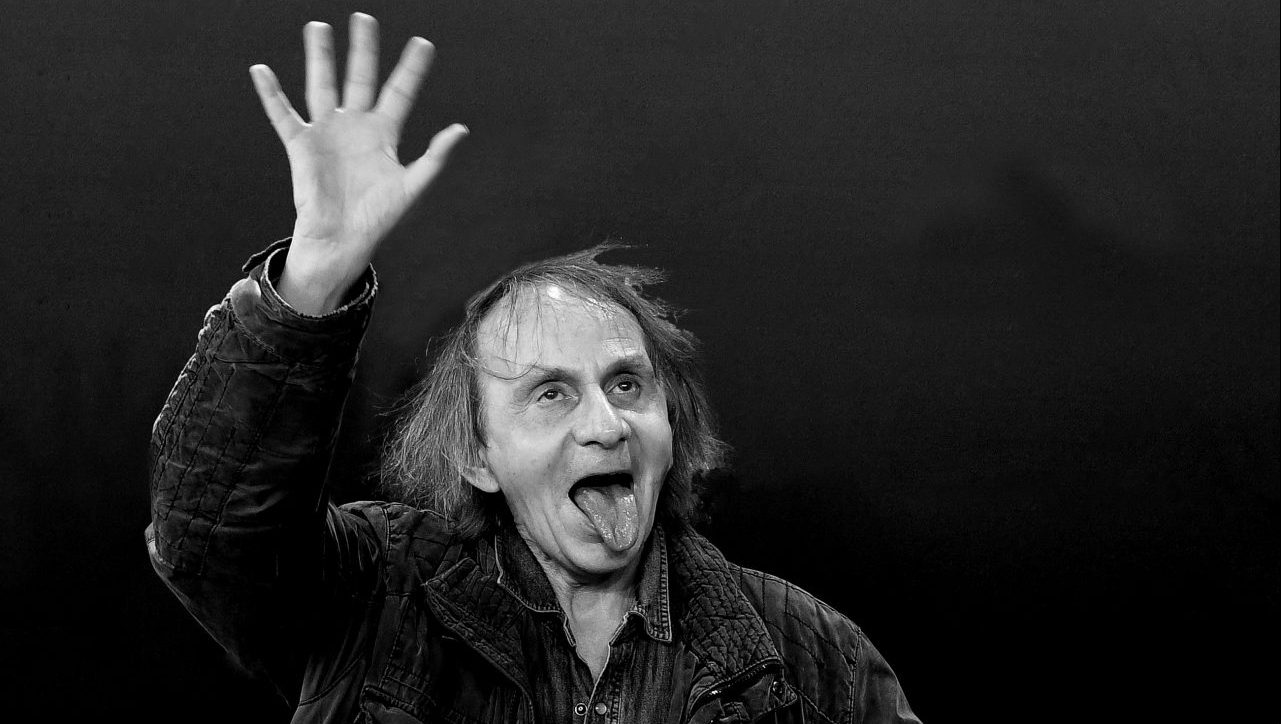A carefree group of beautiful young friends walk through a forest, laughing, talking and hugging as they go. A young child watches them curiously from a car.
Suddenly, the idyll brutally comes to an end. To the mournful tones of Vivaldi, they are gunned down, one by one, Tarantino-style, until only a
tousled young man is left. He wanders, increasingly dishevelled, as he tries to process his grief. People run from him in the street. He attempts suicide. He sees his friends’ bodies loaded on to a truck, and when he crashes a party and finds the balding, bloated gangland chief who ordered the killing, he smears blood across his face. All the time, he sings. Rugged, pained and with a handy pair of biceps, Jakub Józef Orliński is like a emotional rock star in what looks like a mixture of high-end music video and an arthouse short.
But this is actually the video for an 18th-century baroque hymn sung by the Polish countertenor about the suffering of Mary after the crucifixion of Jesus – Vivaldi’s haunting Stabat Mater. “Vivaldi contemporized!” wrote one awestruck YouTube commentator who works in modern pop music.
“Watching stuff like this makes me feel like I’ve wasted my life… A masterpiece!”
Orliński is one of the new classical singers du jour, and brings to the table so much more than his extraordinary voice. He has just wowed the critics at his Royal Opera debut in Handel’s Theodora, when he took a turn pole-dancing in a spangled dress. He has sung with Polish rappers in a Pepsi ad, performed in Versailles with Mika and is a skilled breakdancer.
The 31-year-old’s social media feeds are popular, featuring an eclectic mix of broody artist shots, chatty monologues and goofiness. Canny suppliers are creating and selling merchandise featuring his name.
His Wigmore Hall recital on May 1 is already sold out, he is feted in the media and is booked out for the next few years for gigs across European and US recital halls and opera houses.
But at the start of this month Orliński was at a less conventional venue – singing at the Victoria and Albert Museum in a programme inspired by
their exhibition Fashioning Masculinities: The Art of Menswear, for a series of concert films conceived by the inspired young conductor Oliver Zeffman. Music X Museums takes in the British Library, Science Museum and the Greenwich museums in a bid to showcase classical music masterpieces, historic art and architecture through streaming, high-concept films and audio packages.
Already described as “phenomenally promising”, Zeffman, refusing to be daunted by the lockdowns that devastated many a musician’s career, managed to turn the Covid pandemic to musical use by commissioning the
acclaimed Eight Songs from Isolation. Eight international composers wrote
songs responding to the concept of isolation, and singers filmed themselves on smartphones around their homes, accompanied by an orchestra in separate locations.
The V&A concert brings together a dream team of young, ambitious classical pioneers. While Zeffmann is creatively repurposing live music for a digital audience, Orliński is bringing freshness to a very old genre by cultivating a strong, youthful following for niche, ancient sound that runs back through the centuries to young castrati such as the legendary Carlo Broschi, or Farinelli. Both demonstrate that classical music is perfectly able to have contemporary appeal among the young.
Further evidence can be seen across social media, where a generation of classical YouTubers are gaining ground and brave, resilient young Ukrainian
musicians defiantly film themselves playing their instruments in bomb
shelters while under siege. Classical music itself is actually mainstream if
you consider film soundtracks, computer games and adverts, but people behave as if it’s not. The young barely get exposure unless their parents are interested.
According to a depressing and entirely predictable report by the Incorporated Society of Musicians, the future of Britain’s lucrative music scene is in danger as early-stage learning, especially in state schools, is slowly dying. Music has been so devalued that after the pandemic it was suggested pupils abandon it for other subjects. A-level and GCSE entries are at record lows since music was excluded from the EBacc benchmark introduced by Michael Gove – an opera fan, but surely a hypocritical one given how he pulled up the drawbridge behind him.
Research during lockdown found that young people turned to streaming
classical music – albeit for a low base – for relaxation in times of stress. Can
pioneering talents like Orliński and Zeffman build on this interest? Who
knows, but if a buff young man pole-dancing in a sparkly dress and
platforms while singing beautiful mezzo-soprano tunes can’t attract attention, I don’t know who can.




